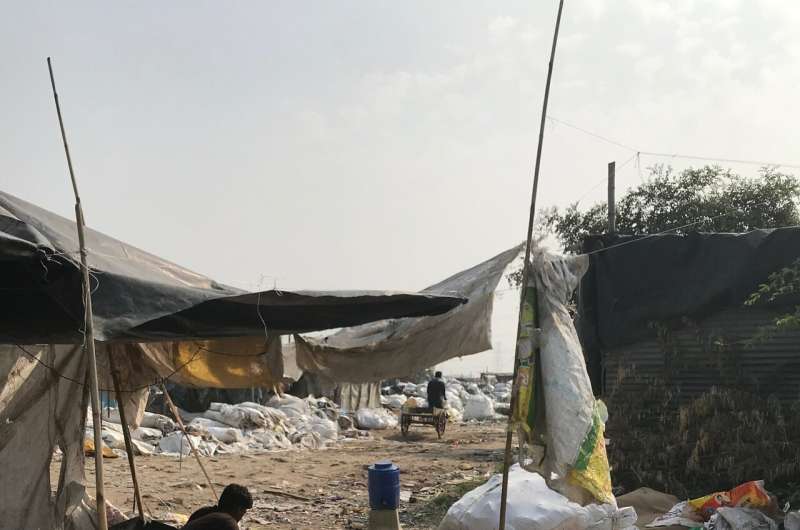Top priority to curb plastic pollution: empowering those at the bottom

In the January issue of OneEarth, NIVA scientist Luca Nizzetto and co-writer Satish Sinha of Toxic Links argue that further empowering marginalized waste pickers in developing countries (already involved in the efficient recovery of value and materials from recyclable plastic waste) is key to curbing plastic inputs to the ocean and tackling several sustainable development goals. Financial mechanisms aimed at valuing also the non-recyclable plastic waste can trigger these workers' spontaneous engagement to curb plastic releases, with an expenditure lower than that of pollution impacts.
Background
Phasing out plastic would be an endeavor of titanic proportions given the pervasive use of plastic in contemporary lifestyles, food packaging, construction, and manufacturing. Also necessary are measures to address the root problem, including public education, circular product design, and proper waste-management processes and infrastructures. It will probably take decades to make this transition, but immediate action is needed to curb plastic pollution and its impacts on the oceans and humanity.
Possible solution
Informal waste pickers and handlers across the world are estimated to be in the order of tens of millions. This often-overlooked workforce can play a significant role in limiting releases of plastic to the environment. Informal waste handlers (i.e., workers operating outside any protective labor-law framework) are among the most vulnerable groups given that waste picking is often a last resort for marginalized urban residents and migrants escaping conflicts or unsustainable conditions. This is a sector that often indiscriminately welcomes some of the poorest men, women, and children on the planet. Empowering this workforce is arguably among the most direct, immediate, and effective ways to dam the global flow of plastic to rivers and oceans while simultaneously providing critical job opportunities.
Society must move away from non-recyclable plastics, and waste pickers and handlers around the world can contribute to such a transition by collecting and trading these materials before they end up in rivers and the sea.
Who is going to pay?
Time might be the limiting factor at present. We are unable to say for how long oceans can withstand continuous accumulation of plastic before the delivery of their services to humanity will irreversibly drop. We must act before the necessary financial resources will be diverted to indefinitely protracted remediation and cleanup projects. Pilot tests and local case studies to assess the proposed solution of empowering the informal work force should be seriously and urgently considered. An overview over the workability of this solution and a proposal for financing the action globally are described in the article.
More information: Luca Nizzetto et al. Top Priority to Curb Plastic Pollution: Empowering Those at the Bottom, One Earth (2020). DOI: 10.1016/j.oneear.2020.01.005
Provided by Norwegian Institute for Water Research (NIVA)




















